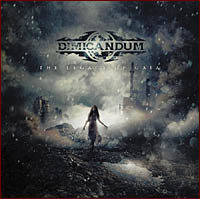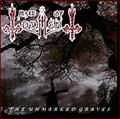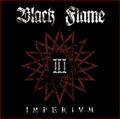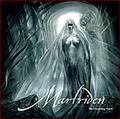DIMICANDUM (ua) - The Legacy Of Gaia (2012)

Label : Metal Scrap Records
Sortie du Scud : 3 octobre 2012
Pays : Ukraine
Genre : Metal Atmosphérique Mélodique
Type : Album
Playtime : 8 Titres - 37 Mins
Ca fleure bon la bataille, l’épopée mythique, mais c’est rentre dedans dès le départ. Les Ukrainiens de DIMICANDUM n’ont pas jugé bon de s’éterniser sur des fioritures d’entrée en matière qui, il faut bien l’avouer, sont parfois de très belles mises en bouche en guise d’ouverture d’une suite bien dégueulasse, des caches misères en somme. Alors pour la faire courte et éviter toutes spéculations sur ce qui va suivre ils attaquent immédiatement et étale de suite le beau mélange justement équilibré entre le chant clair et la voix brutale le tout sur des compositions accrocheuses avec des accents rythmés fortement soutenus par un jeu mélodique. Voilà ça c’est ma mise en bouche à moi et ma façon de vous dire que cet album vaut la peine qu’on s’y attarde. En clair ma conclusion en guise d’introduction.
Si j’ai pris la peine de vous la jouer à l’envers cette fois-ci c’est parce qu’après d’innombrables écoutes le constat reste le même, je dirais même plus, il s’accentue. On détecte la finesse du travail alors qu’on s’y était à peine attardé auparavant.
L’émotion est donc vive quant au détour d’une aubade on est tout à coup surpris par un titre : « At Tha Gates Of Ishtar » qui dévoile un peu de James Hetfield dans le chant de Roman (chant-guitare). Jusqu’ici pas franchement repéré, il devient par la suite une évidence et c’est donc sans l’ombre d’un doute qu’arrivent les nuances Hetfieldienne sur « Indigo Child » avec une structure de chant rageuse, mais aux belles envolées.
« When The Sun Burns Out » adopte quant à elle une vraie syncope dans sa frappe ce qui lui confère une réelle identité épique et l’intensifie. Ils n’auront de cesse d’ailleurs de mettre ce côté chevaleresque dans les compositions ce qui en effrayera certains, mais pas ici. On est loin de l’exubérance puisque l’ensemble est constant et relativement mesuré. Ca sonne juste et quand bien même les qualités du frontman sont réelles, il n’en fait pas des caisses pour autant et c’est tout à son honneur. En outre, ils ont aussi trouvé l’art et la manière pour pousser la grande porte qui mène en enfer sans faire trop de bruit, mais se faire remarquer juste comme il faut.
Je ne vais donc pas me répéter, veuillez prendre la peine de remonter quelques lignes plus haut, de relire les éloges et donc d’approuver et réitérer le constat.
Ajouté : Mardi 12 Février 2013
Chroniqueur : Line44
Score :    
Lien en relation: Dimicandum Website
Hits: 9714
|














